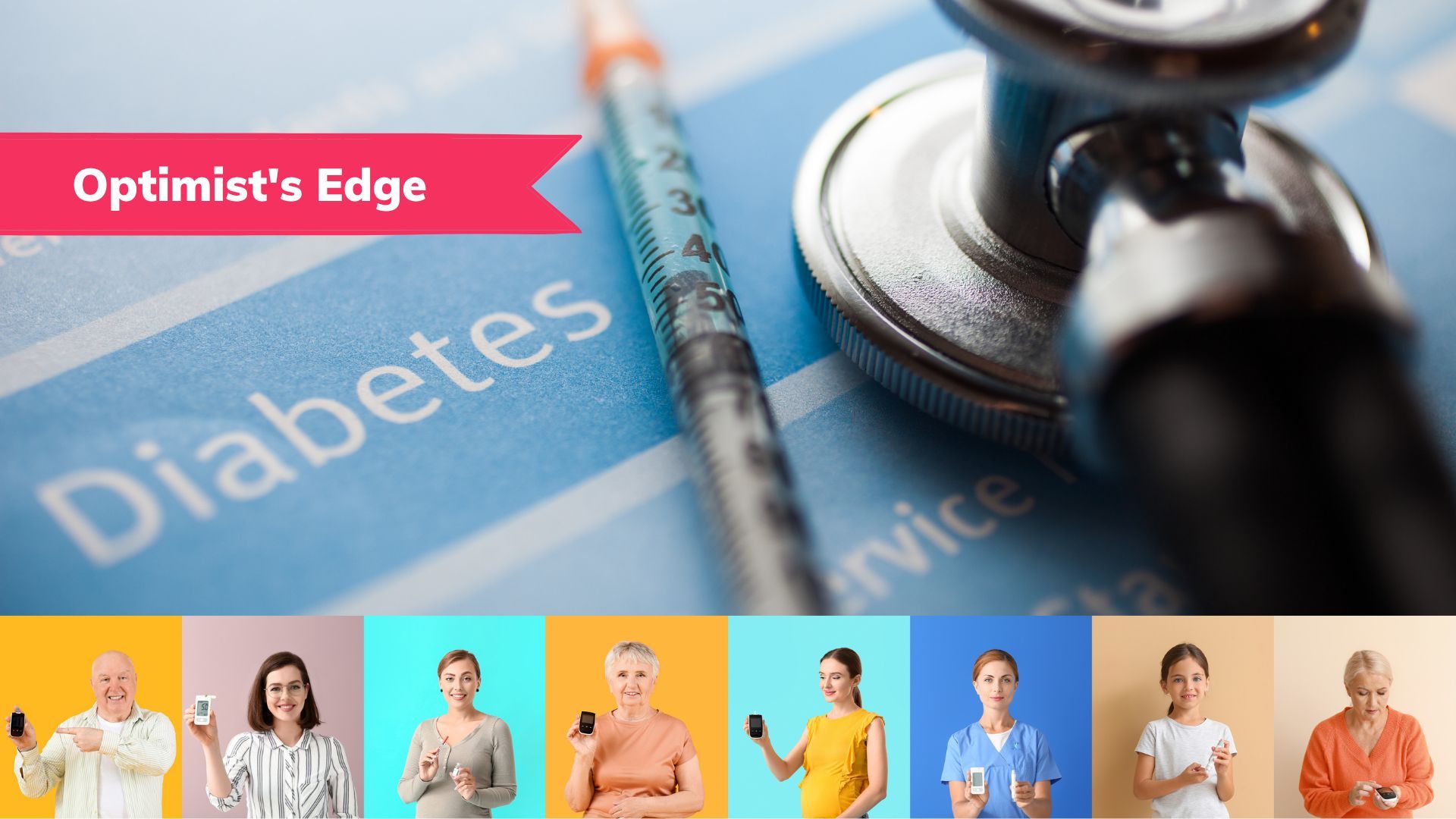
💡 Optimist's Edge: Diabetes will be able to be cured - sooner rather than later
Diabetes has been described as a global epidemic, but its end may now be within reach.
Share this story!
📉 What people think
Will it be possible to cure diabetes before the year 2040? 61 percent answer yes to that question, while 39 percent say no. This is according to a recent survey conducted by Warp News.
A majority thus believe that the development over the next twenty years will mean that diabetes goes from a disease that can only be treated, to becoming one that can be cured. That sounds promising, doesn't it?
📈 Here are the facts
Diabetes is one of the most common widespread diseases and the disease that is increasing the most in the world. Half a billion people today have diabetes, or every eleventh adult in the world. Untreated diabetes, which is classified as type 1 or 2, can lead to several serious conditions, as well as cause other diseases such as cardiovascular disease. In the year 2021, 6.7 million people died of diabetes. However, there are several different ways to treat and control the disease, which means that most people in the developed part of the world can live adequate lives, despite the disease. On the other hand, as many as 3 out of 4 diabetics live in low- or middle-income countries where the conditions for successful treatment can vary greatly.
And most people never recover from diabetes. Type 1 is a lifelong diabetic disease, while those who have fallen ill with type 2, with changed lifestyle factors and the right treatment, can get cured if they get the right help early in the process of illness. However, many people also have the type 2 diagnosis for many years, and often for the rest of their lives.
Finding a cure that not only slows down or alleviates the progress of the disease, but also makes the patient free from diabetes permanently would mean huge gains at both the micro and macro level, for both people and societies:
- Diabetes means great suffering and delimits life. In Sweden alone, 800 children fall ill with type 1 diabetes every year. It means an everyday life with frequent care visits, continuous self-monitoring, and medication at the family level.
- It consumes a lot of resources. As diabetes affects many people and is also becoming more common, society and healthcare institutions are investing a lot of resources in caring for and treating diabetes, and the sequelae that come along with the diagnosis.
- To find a cure for diabetes would mean a reduction in suffering, a healthier and longer life for many people as well as freeing up large resources for other things.
- If not a cure - then stop for disease onset. There are promising signs that in the future it will be possible to predict - and prevent - that the disease in those who are about to become ill with diabetes - does not break out. Recent research suggests that epigenetic biomarkers may play a key role in this work of action.
- In healthcare, there is a growing insight that diabetic patients need individualized treatment. We hope to be able to develop biomarkers that can be used in the clinic to predict how patients will respond to metformin and other drugs in type 2 diabetes, says Charlotte Ling who is a professor of epigenetics at Lund University.
- Since it has also been seen that monitoring weight is a decisive factor for type 2 diabetes development, there is already an opportunity today to “reverse in time” and get the symptoms to stop, with the help of weight loss and a healthy lifestyle.
💡 Optimist's Edge
Many are looking for new solutions to the disease and there is a great interest in innovation in the field. Being involved in eradicating the disease is both universally rewarding, and can be financially lucrative. When diabetes becomes curable, further medical leaps will be possible based on the lessons learned.
👇 How to get the Optimist's Edge
❓ So, how do you get the most out of this knowledge?
- Invest in learning more about diabetes, the latest findings, and the effects of the treatments available today. Epigenetic research is in its infancy. Like the use of data in medical science.
- Do you have a scientific profile? Maybe you are an engineer or a mathematician, or a nurse? If you are looking for further education and want to niche yourself within a future field, think about how you can make a difference in the fight against diabetes.
- Or you are interested in digital gadgets and self-care. New tools will be necessary to develop. Here, Healthline lists the best diabetes apps available on the market today.
- Develop more technology. Join in on developing the next generation of tools for diabetes monitoring. New ways of collecting data in the field will be able to provide a better forecast for future research in the field.
- Join in and launch preventive healthcare. Researchers point to the need to change healthcare so that it becomes more preventive. Such a shift could have a major effect on the development of diabetes. If you are a nurse, doctor, or entrepreneur in healthcare, it is time to deepen your knowledge of preventive healthcare. As a private person, there is also a lot you can do to make a difference. What would your life look like if you were diagnosed with diabetes? Why wait to make the lifestyle changes in diet, exercise, and recovery when you can do it right now?
You now have an advantage because you have gained this knowledge before most others –